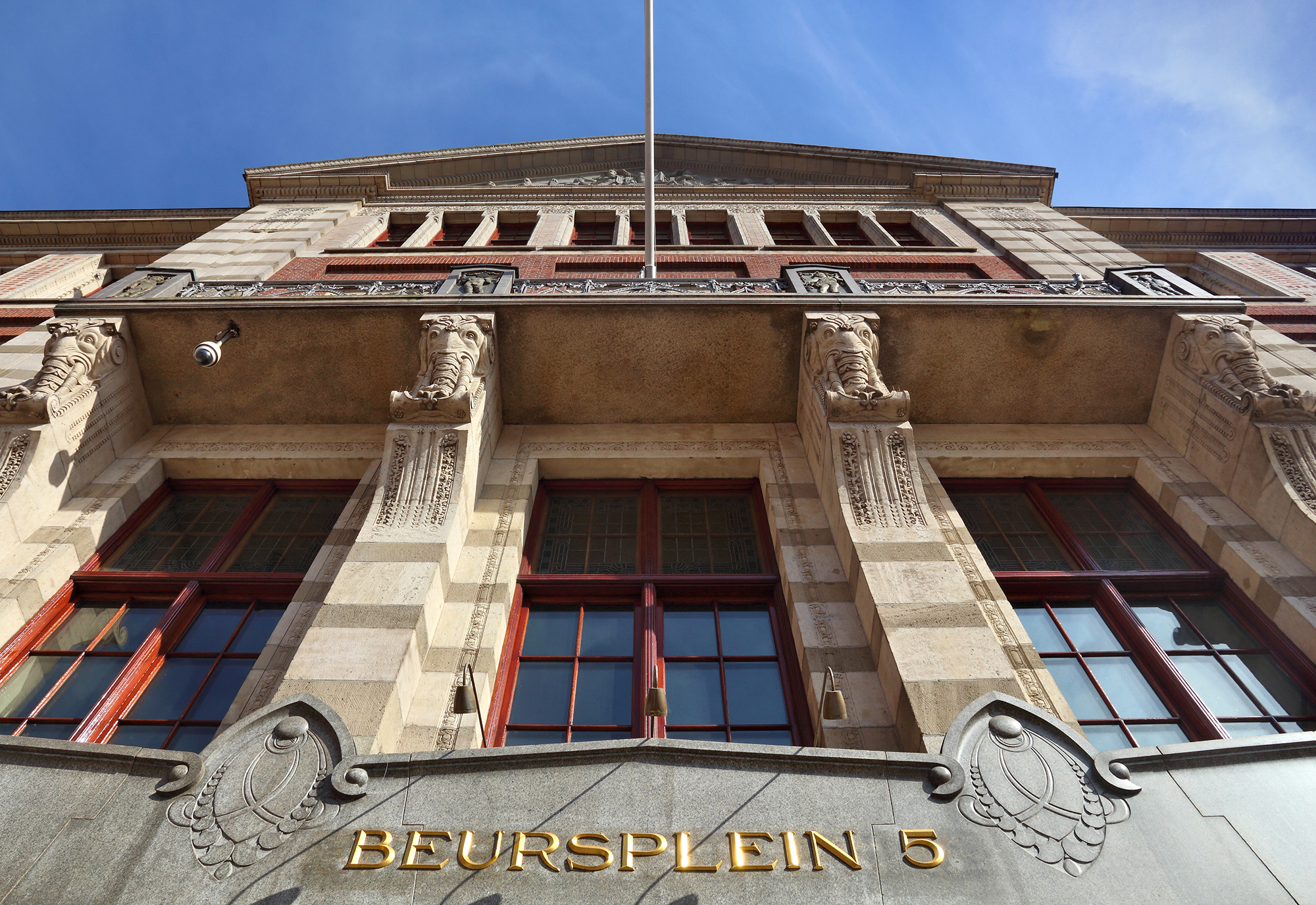Brexit boosts share trading volume in Amsterdam

John E. Kaye
- Published
- Banking & Finance, Home

Amsterdam displaces London as Europe’s top stocks centre after Brexit
The dutch capital moves ahead of London as Europe’s biggest share trading centre after Britain left the European Union’s single market, and picked up a chunk of UK derivatives business along the way, according to data published on Thursday.
Stock exchanges in the Dutch capital traded 9.2 billion euros ($11.15 billion) a day in January, compared to London’s 8.6 billion, according to the Cboe exchange, which operates in both cities.
This compares with an average of 17.5 billion euros traded daily in London during 2020, when Frankfurt was second with 5.9 billion and Amsterdam sixth at 2.6 billion, Cboe said.
The City of London had long warned of the consequences of leaving the EU single market without adequate provisions for trade in services, and notably finance, which accounted for more than 10% of UK tax receipts before Brexit.
The EU’s securities watchdog ESMA said on Thursday the shift of share trading from London to the bloc is permanent.
The EU has shown no sign of reversing its position that euro-denominated shares must be traded in the EU – whose internal market Britain left on 1 January.
The gap may narrow, however, as trading in Swiss shares resumed in Britain this month. It is averaging 250 million euros and is expected to build up towards over a billion euros a day – the level reached before trading of Swiss shares in London stopped in June 2019.
Separate data published on Thursday showed how chunks of trading in euro-denominated interest rate swaps have shifted from London, the world’s biggest swaps trading centre, to platforms in the EU and New York since January.
Platforms in Amsterdam, and to a much lesser extent Paris, accounted for a quarter of the euro rate swaps market in January, up from just 10% last July, IHS Markit said.
Over the same period, London’s share fell from just under 40% to just over 10%, with U.S. platforms doubling volumes to 20% of the total euro swaps market.
Progressive equivalence discussions
As with shares, the swaps market has been fragmented by Brussels “obliging” EU-based firms to trade interest rate swaps and credit default swaps either on a platform inside the bloc, or in a non-EU country whose platforms have been approved for use, such as the United States.
London has not yet secured that “equivalence” because Brussels says it needs information about Britain’s intentions to diverge from EU rules.
Prime Minister Boris Johnson’s spokesman said London had already supplied the necessary paperwork and was “one of the world’s most pre-eminent financial centres, with a strong regulatory system”, adding that fragmenting markets was in no one’s interests.
The EU’s financial services chief Mairead McGuinness said on Thursday the bloc will discuss equivalence with Britain “progressively” and take into account its intentions regarding rules on a case-by-case basis, but there “cannot be equivalence and wide divergence”.
One of her senior officials has said the three-way split between Britain, the EU and United States in swaps due to the EU “derivatives trading obligation” or DTO will not be reversed.
“For the foreseeable future, all three jurisdictions will have trading venues that offer all currencies in such volumes that keep the DTO in all currencies,” Tilman Lueder, head of securities markets at the EU executive, told a Bloomberg event.
“The three-way liquidity split is going to stabilise.”
The Bank for International Settlements says the gross market value of euro rate swaps in the first half of last year was the equivalent of $5.2 trillion.
Brussels had been clear that it wanted euro-denominated financial activity shifted from London to build up its own capital market and have direct supervision.
Over 6 billion euros in daily trading left London on 4 January for EU-based platforms.
The rise of Amsterdam, home to the world’s oldest stock exchange, had been well flagged as pan-European share platforms – Cboe and London Stock Exchange’s Turquoise in London – began preparing to open in the Amsterdam after Britain voted in 2016 to leave the EU.
The ICE exchange announced this week that trading in EU carbon emissions worth a billion euros daily will move from London to the Dutch city during the second quarter. ($1 = 0.8251)
(Additional reporting by Padraic Halpin in Dublin; Editing by Timothy Heritage and Kevin Liffey and Kirsten Donovan)
By Huw Jones
RECENT ARTICLES
-
 Managing cross-border risks in B2B e-commerce
Managing cross-border risks in B2B e-commerce -
 J.P. Morgan launches first tokenised money market fund on public blockchain
J.P. Morgan launches first tokenised money market fund on public blockchain -
 Aberdeen agrees to take over management of £1.5bn in closed-end funds from MFS
Aberdeen agrees to take over management of £1.5bn in closed-end funds from MFS -
 Enterprise asset management market forecast to more than double by 2035
Enterprise asset management market forecast to more than double by 2035 -
 EU Chamber records highest number of entries for 2025 China Sustainable Business Awards
EU Chamber records highest number of entries for 2025 China Sustainable Business Awards -
 Inside Liechtenstein’s strategy for a tighter, more demanding financial era
Inside Liechtenstein’s strategy for a tighter, more demanding financial era -
 ‘Stability, scale and strategy’: Christoph Reich on Liechtenstein’s evolving financial centre
‘Stability, scale and strategy’: Christoph Reich on Liechtenstein’s evolving financial centre -
 Bridging tradition and transformation: Brigitte Haas on leading Liechtenstein into a new era
Bridging tradition and transformation: Brigitte Haas on leading Liechtenstein into a new era -
 Liechtenstein in the Spotlight
Liechtenstein in the Spotlight -
 Fiduciary responsibility in the balance between stability and global dynamics
Fiduciary responsibility in the balance between stability and global dynamics -
 Neue Bank’s CEO on stability, discipline and long-term private banking
Neue Bank’s CEO on stability, discipline and long-term private banking -
 Research highlights rise of 'solopreneurs' as technology reshapes small business ownership
Research highlights rise of 'solopreneurs' as technology reshapes small business ownership -
 Philipp Kieber on legacy, leadership and continuity at Interadvice Anstalt
Philipp Kieber on legacy, leadership and continuity at Interadvice Anstalt -
 Building global-ready funds: how South African managers are scaling through offshore platforms
Building global-ready funds: how South African managers are scaling through offshore platforms -
 Global billionaire wealth hits record as relocation and inheritance accelerate, UBS finds
Global billionaire wealth hits record as relocation and inheritance accelerate, UBS finds -
 Human resources at the centre of organisational transformation
Human resources at the centre of organisational transformation -
 Liechtenstein lands AAA rating again as PM hails “exceptional stability”
Liechtenstein lands AAA rating again as PM hails “exceptional stability” -
 Lusaka Securities Exchange surges ahead on reform momentum
Lusaka Securities Exchange surges ahead on reform momentum -
 PROMEA leads with ESG, technology and trust in a changing Swiss market
PROMEA leads with ESG, technology and trust in a changing Swiss market -
 Why collective action matters for pensions and the planet
Why collective action matters for pensions and the planet -
 Structuring success with Moore Stephens Jersey
Structuring success with Moore Stephens Jersey -
 PIM Capital sets new standards in cross-jurisdiction fund solutions
PIM Capital sets new standards in cross-jurisdiction fund solutions -
 Innovation, advisory and growth: Banchile Inversiones in 2024
Innovation, advisory and growth: Banchile Inversiones in 2024 -
 Digitalization, financial inclusion, and a new era of banking services: Uzbekistan’s road to WTO membership
Digitalization, financial inclusion, and a new era of banking services: Uzbekistan’s road to WTO membership -
 Fermi America secures $350m in financing led by Macquarie Group
Fermi America secures $350m in financing led by Macquarie Group



























